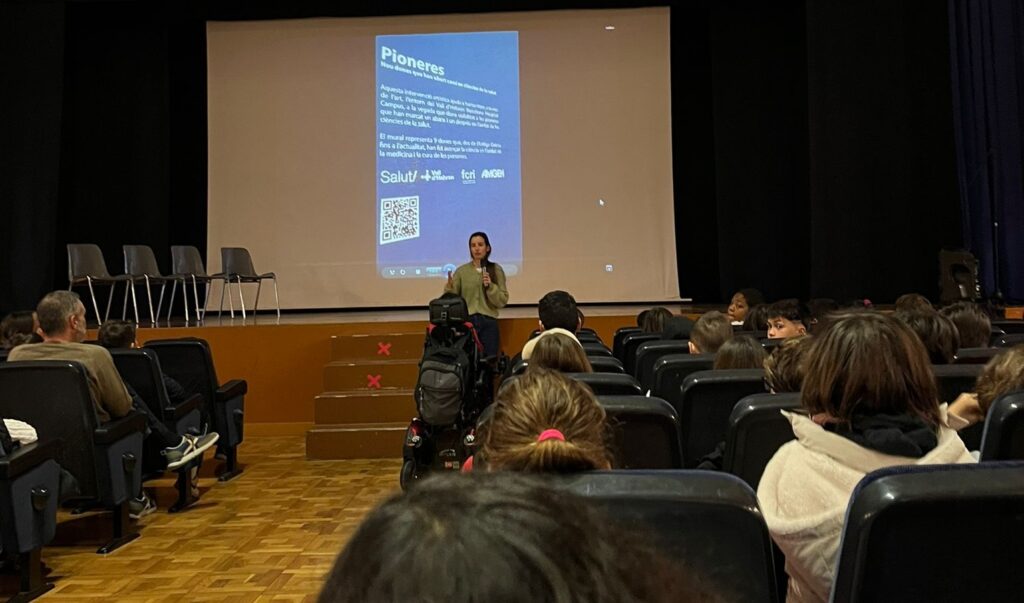Julia was recently invited to give talks to students from different ages at the Salesians Horta School in Barcelona. She explained her trajectory as a researcher and entered in more detainment in the science behind human reproduction.

Last 7th of March, Julia Fabà, PhD student from the Bioengineering for Reproductive Health Group led by Samuel Ojosnegros at IBEC, was invited to give several talks to students from different ages at the Salesians Horta school in Barcelona, concretely, 300 10-13 year-old students, and more than 40 15-16 year-old students that have chosen Biology as subject.
Julia began with a talk in the school theatre, during which she explained her academic journey, emphasising how she became a PhD student and the decisions she had to make along the way. She also explained why she chose to study human reproduction and specialise in embryology. In answer to the question, “Why did you ask yourself these specific questions and not others?”, Julia said that she was one of a set of triplets, which is why reproduction had always drawn her attention.
Lately, In the classroom talks, she went into more detail about anatomy, physiology, embryology and human reproduction, also mentioning some of the pathologies commonly related to these fields that frequently lead to pregnancy complications. The students were very interested and asked questions such as, “How do you see the embryos outside the uterus?”, “How do the sperm know where the egg is?”, “Can spermatozoids think?’ and ‘Why do women have periods and men don’t?’
When talking to older students who will probably pursue a scientific career in subjects such as Biology, the questions were more oriented towards the future as a scientist. They asked, for example, about research conditions in Spain and whether it would be better to go to another European country for research.
Overall, it was a very enriching experience for Julia and the students. Who knows if this day will inspire some of them to become scientists in the future?
